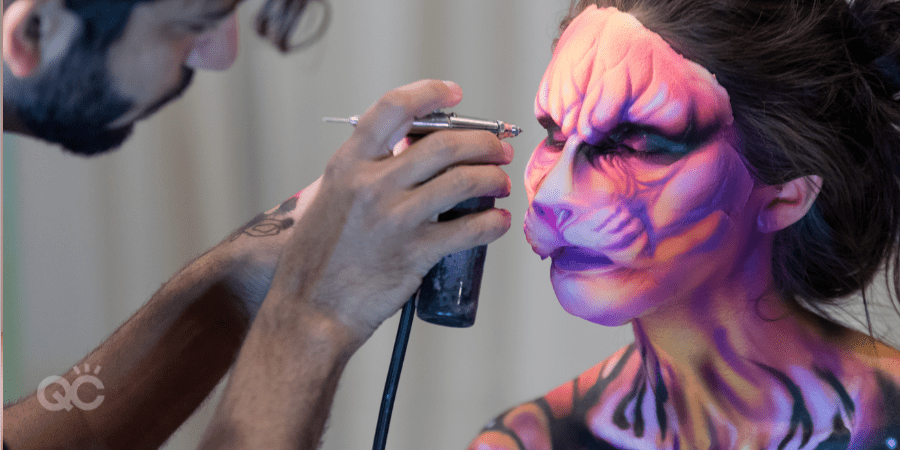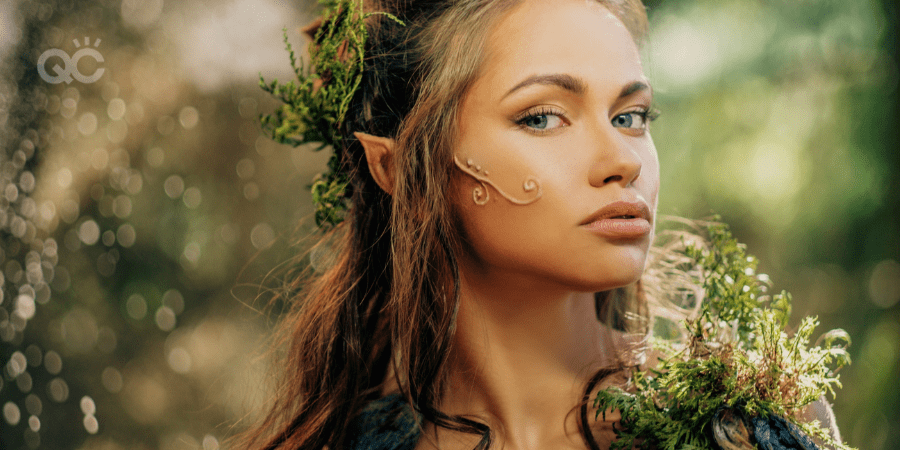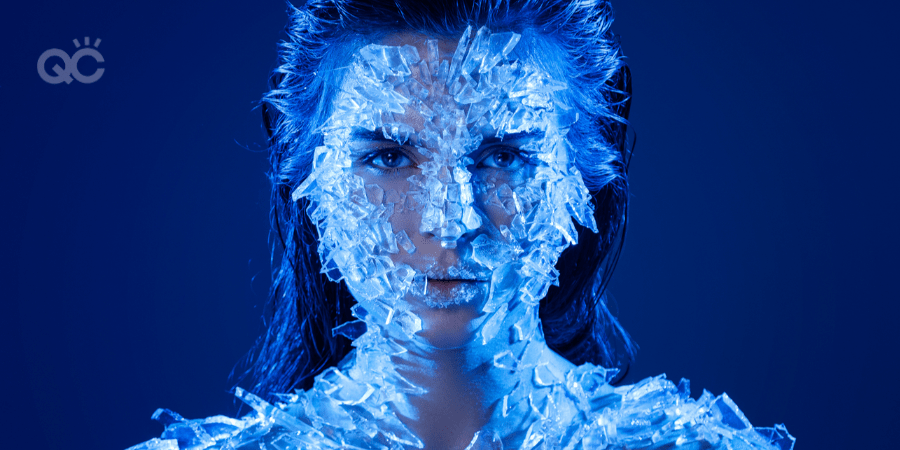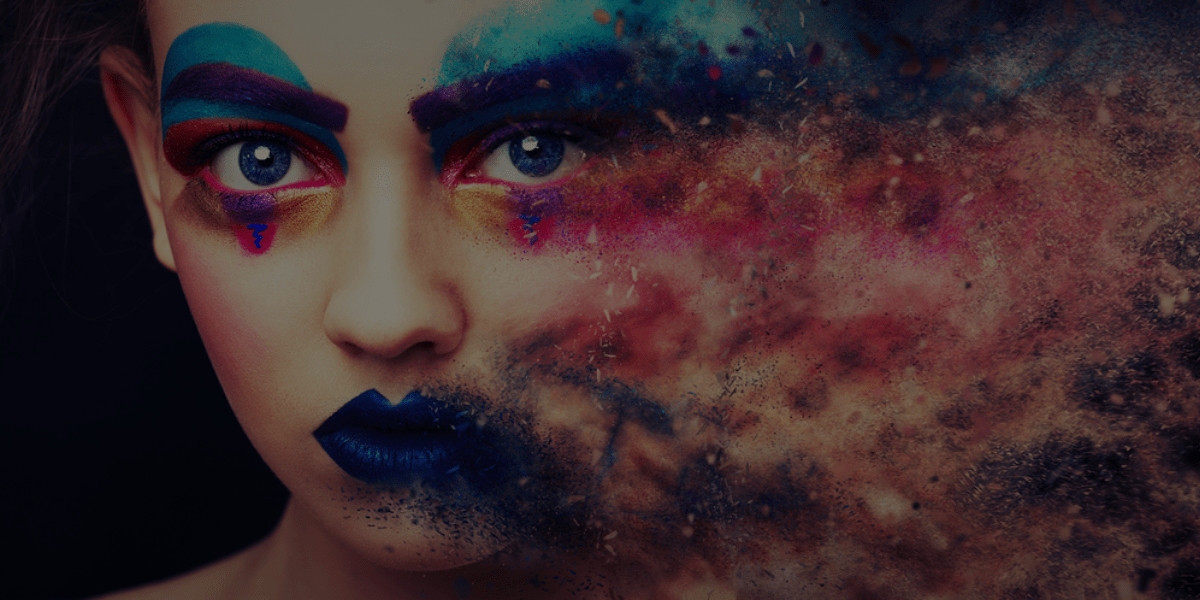Gabrielle Rivera is a QC Makeup Academy graduate and professional makeup artist. To see more of her work, visit her Instagram here.
As a Special Effects makeup artist, one of the most important things I’ve learned is that it’s crucial to ask the right questions to your clients before the makeup application. During each consultation, I ask my client a variety of questions. That way I can guarantee that the desired look can be achieved, using the appropriate products, to create a flawless and lasting look.
Keep reading to see which important questions Gabrielle always asks her clients.

1. “Do you have any skin allergies or sensitivities?”
This is the most important question to ask any client when applying products to the skin or face. As a makeup artist, you want to ensure that you’re protecting your client’s safety, as well as your own! For example: if she were to have an allergic reaction to a product used on her skin, you could be held liable for a lawsuit. But more importantly, you wouldn’t want to traumatize your client with such a reaction in the first place. Not only would that leave a sour taste in her mouth towards future makeup artists, it can damage your reputation as a makeup artist.
Consultations are absolutely necessary for this reason. As a professional, you should make sure to address any and all skin concerns prior to the application of any product on the skin. This is also a great way for you to check that you’ve prepared the appropriate makeup and supplies for the specific look being requested.
Lastly, when conducting a trial, it’s essential to test small areas on the client’s skin, with the products you intend to use on the day of their event. Testing the products on her skin helps confirm that the client won’t have a reaction.
2. “What are the conditions of the event/occasion?”
Certain factors to include are:
a) Weather
This is the second question I always ask: “Is your event indoors or outdoors? Will weather or other conditions (water, heat, etc.) be a variable?”
The answer can be something that makes or breaks the makeup look. For instance, if the client is attending an outdoor event in the heat (or indoors, where heat may be a factor), the types of products you use will vary, in order to ensure the makeup will be long-lasting.
If the desired makeup look requires face or body painting, you may need to use water-proof makeup, and set it afterwards with powder. This will prevent the makeup from running or smudging due to high temperatures. Similarly, if working with prosthetics, you may need to bring with you a heavier or long-lasting adhesive, so that the prosthetic won’t lift due to heat or moisture throughout the event.

b) Length of the Event
In addition to weather, another question that plays a factor in product choice is, “How long is the event?”
This can be just as crucial in determining what specific products should be used, to guarantee a long-lasting makeup look. This is also a necessary question because the client will most likely eat and drink throughout the event. Gathering this information during the consultation provides you with the opportunity to make specific recommendations for the look, if needed.
Say your client wants to create a look that requires a prosthetic around the mouth. You may need to alter the prosthetic – or even the overall look – to ensure that she will be able to drink, eat, or speak comfortably. Likewise, you can also make sure you’re properly prepared to use certain products on the day of, to stop the prosthetic from wearing or lifting.
3. “What is your skin type? Do you have any skin concerns?”
When applying makeup to clients, it’s always a smart choice to ask what her skin type is. Although it might seem obvious if her skin is oily or dry, you can never assume. Remember: although you’re the professional, the client has valuable information to share that can help make the application flawless. Whether she has oily, dry, or combination skin will help determine if you’ll use cream, grease, water-based, or silicone-based products to create the desired look.
This also provides you the opportunity to listen to any concerns your client may have about her skin. She may be acne prone, have areas of dry patches, an oily t-zone, large pores, etc. Allowing your client the opportunity to speak and be heard creates good rapport with her. She’ll feel that her needs and/or concerns are being taken into consideration. This is especially important for client’s who wear minimal makeup, or for those who don’t wear any makeup at all.
Keep in mind that the application process for Special FX makeup can come as a big shock, so you want to keep your client feeling confident and assured that they’re in good hands!

4. “What are you wearing for the event? What hairstyle have you decided on?”
Last but certainly not least, your job as a makeup artist is to help your client achieve her desired look. But we can’t forget about the hair or outfit!
An outfit and hairstyle can add or take away from a desired look. So it’s equally important for you as the professional to give your input/recommendations on something you feel compliments the rest of her ensemble. Sometimes, clients don’t take their clothing or hairstyle into consideration when planning the Special FX makeup itself.
Depending on the hairstyle and wardrobe selected, your client may need to come dressed prior to. The hairstyling may also need to be completed before the makeup application. Something else to consider asking is: “Will the look require any makeup or prosthetics to cover her neck or ears, or will the hair and/or outfit cover these areas?”
Always remember to plan for areas of skin not covered!
All makeup artist jobs require that the final product all be a cohesive look. This is particularly important when it comes to Special FX makeup. Never hesitate to tap into your knowledge on color theory, hair styling, Special FX, and Fantasy training. This is what makes the look realistic and more effective, and your client will be sure to love it!
